
Filter News
Area of Research
News Topics
- (-) Biology (29)
- (-) Environment (43)
- (-) Materials (59)
- 3-D Printing/Advanced Manufacturing (20)
- Advanced Reactors (3)
- Artificial Intelligence (26)
- Big Data (10)
- Bioenergy (22)
- Biomedical (7)
- Biotechnology (6)
- Buildings (14)
- Chemical Sciences (24)
- Clean Water (5)
- Climate Change (31)
- Composites (6)
- Computer Science (23)
- Coronavirus (4)
- Critical Materials (6)
- Cybersecurity (9)
- Decarbonization (30)
- Education (3)
- Emergency (1)
- Energy Storage (21)
- Exascale Computing (15)
- Fossil Energy (2)
- Frontier (19)
- Fusion (9)
- Grid (16)
- High-Performance Computing (33)
- Hydropower (3)
- Irradiation (2)
- Isotopes (11)
- Machine Learning (15)
- Materials Science (16)
- Mathematics (2)
- Mercury (2)
- Microelectronics (2)
- Microscopy (7)
- Molten Salt (1)
- Nanotechnology (7)
- National Security (21)
- Net Zero (5)
- Neutron Science (32)
- Nuclear Energy (21)
- Partnerships (24)
- Physics (14)
- Polymers (4)
- Quantum Computing (12)
- Quantum Science (9)
- Renewable Energy (2)
- Security (3)
- Simulation (29)
- Software (1)
- Space Exploration (4)
- Summit (9)
- Sustainable Energy (17)
- Transportation (18)
Media Contacts
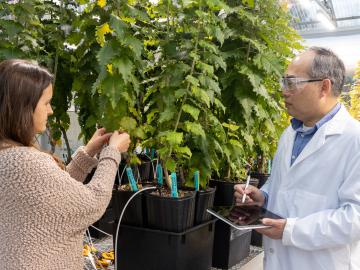
Nature-based solutions are an effective tool to combat climate change triggered by rising carbon emissions, whether it’s by clearing the skies with bio-based aviation fuels or boosting natural carbon sinks.
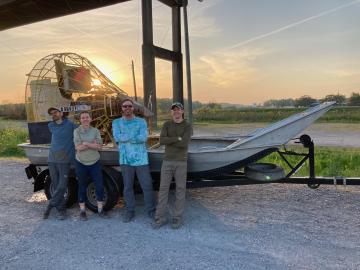
As a biogeochemist at ORNL, Matthew Berens studies how carbon, nutrients and minerals move through water and soil. In this firsthand account, Berens describes recent fieldwork in Louisiana with colleagues.
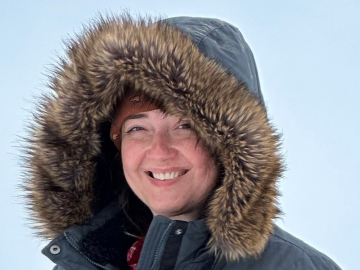
Colleen Iversen, ecosystem ecologist, group leader and distinguished staff scientist, has been named director of the Next-Generation Ecosystem Experiments Arctic, or NGEE Arctic, a multi-institutional project studying permafrost thaw and other climate-related processes in Alaska.
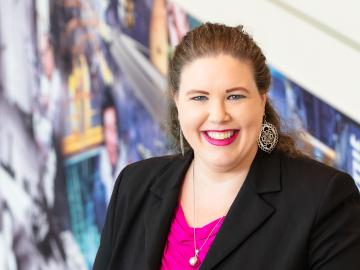
Anne Campbell, an R&D associate at ORNL, has been selected for an Emerging Professional award from ASTM International. ASTM, formerly the American Society for Testing and Materials, is an international standards organization that develops and publishes voluntary consensus technical standards for a wide range of materials, products, systems and services.
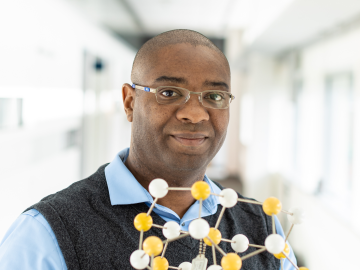
Valentino “Tino” Cooper, a scientist at ORNL, has been appointed to DOE’s Basic Energy Sciences Advisory Committee for a three-year term. Cooper’s research elucidates the fundamental understanding of advanced materials for next-generation energy and information technologies.
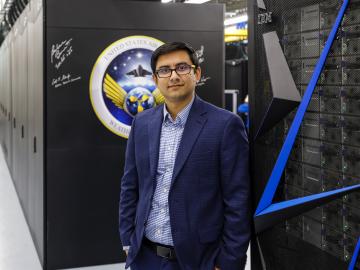
Climate change often comes down to how it affects water, whether it’s for drinking, electricity generation, or how flooding affects people and infrastructure. To better understand these impacts, ORNL water resources engineer Sudershan Gangrade is integrating knowledge ranging from large-scale climate projections to local meteorology and hydrology and using high-performance computing to create a holistic view of the future.
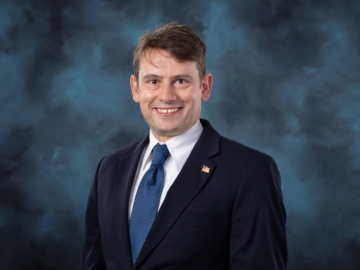
Andrew Lupini, a scientist and inventor at ORNL, has been elected Fellow of the Microscopy Society of America.
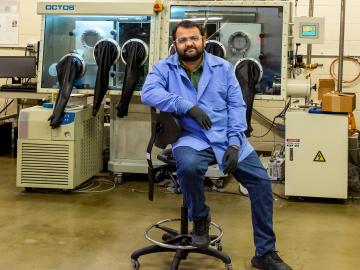
Marm Dixit, a Weinberg Distinguished Staff Fellow at ORNL has received the 2023 Rosalind Franklin Young Investigator Award.
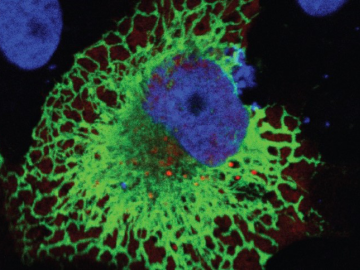
Oak Ridge National Laboratory scientists exploring bioenergy plant genetics have made a surprising discovery: a protein domain that could lead to new COVID-19 treatments.
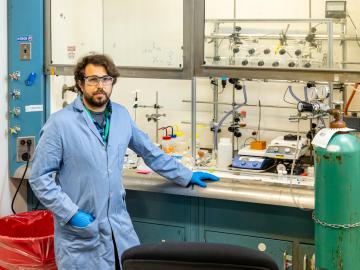
Andrew Ullman, Distinguished Staff Fellow at Oak Ridge National Laboratory, is using chemistry to devise a better battery


